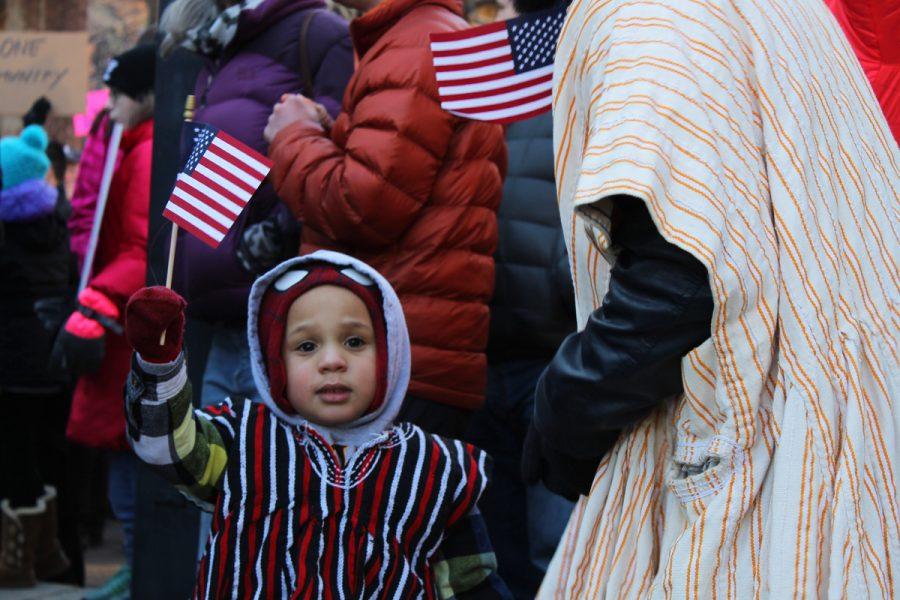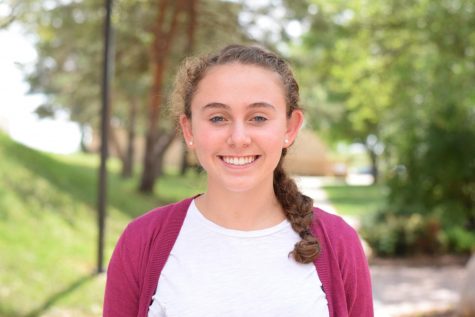The implications of school vouchers on K-12 education
Among debates over the future of America’s education system, the new administration’s Secretary of Education, Betsy DeVos, has proposed a system of school choice using government-funded vouchers. Likely to come into effect in some form in Iowa, the question remains whether or not this new system will be able to fulfill its goal of providing a better education to those who need it the most.
March 29, 2017
Every year public education becomes increasingly expensive. According to Ballotpedia, from 2010 to 2013, the yearly cost of education per student in Iowa increased from $9,763 to $10,313. With proposed education budget cuts, many in the Iowa City Community School District (ICCSD) are worried about the implications of public education spending in the future.
As it stands now, the vast majority of school funding, whether K-12 or state universities, comes from state and local taxes. The amount of money each school gets from the state is fixed based on the number of students that attend the school.
However, Secretary of Education Betsy DeVos advocates for a change to this system. DeVos is a proponent of voucher programs and tax-credit initiatives as an alternative to public schools. Her plan is to provide parents with publicly-funded money to send their children to schools of their choosing, a program dubbed “school choice.”
A school-choice system would give students a voucher, a government-funded coupon redeemable for tuition fees. Students can then take the voucher to any school they want, whether it is public, charter, or private. The goal is to introduce a free-market mentality into the school system, allowing schools to compete for the best students and encouraging innovation.
Theoretically, students would move away from poor quality schools, forcing them to close down, while academically successful schools would grow and replicate their results elsewhere. However, the benefits of a free-market style education system are unclear.
“Market competition works extremely well for some goods, like pizza and cars,” said Todd Knoop, economics professor at Cornell College. “But the question is whether education is the same kind of good as pizza and cars [that] can be bettered by competition.”
Despite uncertainties, there are tangible benefits to a school-choice system. Currently, students attending public schools can’t choose their school and are instead assigned to a school based on where they live. With the aid of school-choice vouchers, students would have the opportunity to relocate schools based on their needs.
“I do agree with the school choice decision, because I think that kids should be able to go to the school they want,” said Joseph Verry ’18. “It should be the school’s problem to accommodate student population and not have to turn kids away. School choice is very applicable to our current situation with Liberty High school; some students are being forced to go to Liberty because they live within a boundary that a small board came up with. Shouldn’t a student have the choice if they want to stay at West or City?”
While government-funded vouchers would provide students with more freedom to choose the school that suits them, there is also concern that school vouchers would vastly decrease the amount of funding that public schools receive. To many, funding for school vouchers and public schools appears to be a zero-sum game.
“Here in Iowa, even if no one actually changed schools, public schools would still get less money as the students that are currently home-schooled, or attend private school would no longer pay into the general public fund,” said social studies teacher Dominic Iannone.
Members of the ICCSD foresee cuts to an already tight budget.
“If [Trump’s education budget] is passed, the state and district are at risk of significant reductions in federal support for our schools and programs,” said ICCSD Superintendent Stephen Murley. “Each year the state legislature decides on Supplemental State Aid (SSA). For the past seven years there has only been one year when the approved SSA has met projected cost increases for school districts across Iowa … Schools have been asked to maintain programming and staffing with real reduction in funding.”
In addition to a possible decrease in funding for public schools, there is doubt over whether vouchers will aid impoverished students, the population that proponents of vouchers often suggest would benefit the most under their system. The problem that the cost of transportation and private school tuitions poses is significantly harder to overcome for poor families than for affluent families, even with the added help from the government.
“The vouchers are never large enough to sufficiently reduce the costs of private schools for the poorest—the people who might benefit the most from having more school choice,” Knoop said. “On the other hand, everyone who already goes to private school will now qualify for a voucher, draining resources from public schools.”
Additionally, students who don’t need the financial aid are given it, whereas students who can’t pay even a marginal difference are given the same amount. For example, if a student’s income is $1,000 a year, tuition is $6,000 and the state is providing $5,000, they’d still struggle to make ends meet.
Controversy has also arisen over whether a school-choice system would result in a better education. Studies on the effectiveness of charter schools are unclear, and there is concern that school vouchers would unnecessarily diminish the quality of public schools without real benefits to the overall education system.
“What this new administration should be focusing on is increasing funding and support for public schools, not working to tear them down,” said Madeleine Roberts-Ganim ’19. “[In fact], many of the charter schools in Michigan that DeVos supported had really low test scores; one even had the lowest in the state.”
Whether or not this proposed education plan will be beneficial to Iowa’s education system is yet to be seen; however, with a unified state and federal Republican government, some form of school-choice voucher is foreseeable in Iowa’s future.





